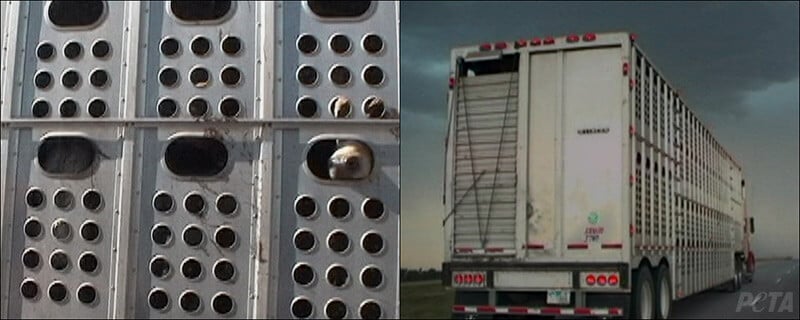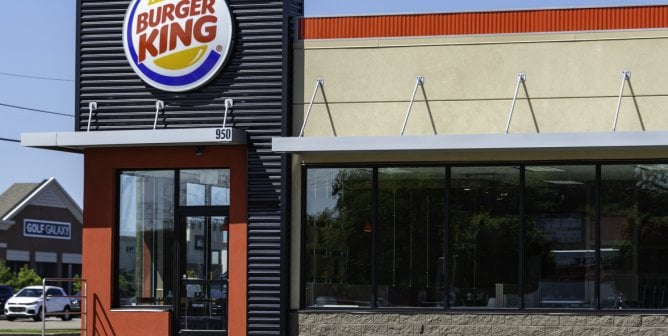Downed Cow: The True Story of One Anonymous Animal Born Into the Meat Industry
For many people, a single interaction with one special animal is all it takes to make a “light bulb go off” in their heads. In one instant, they suddenly realize that all animals—not just the cats and dogs with whom we share our hearts and homes—are unique, sensitive, amazing individuals. This includes the cows and pigs who languish on industrial feedlots, the elephants and tigers beaten into submission under the big top, and the rats and rabbits locked inside cages and subjected to tests for toxic chemicals. Sometimes, the story of just one animal is all it takes.
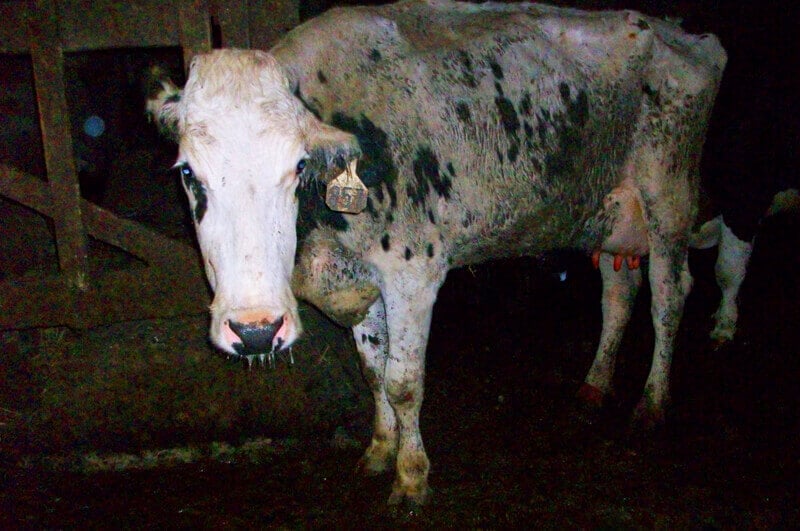
Each month, PETA sends out thousands of free vegan starter kits to people who have made the compassionate decision to explore plant-based living. Each of these kits contains the following powerful story which, alone, has inspired an untold number of people to go vegan. It details one cow’s harrowing, heartbreaking trip to slaughter. As you read the story below, remember: The true price of every hamburger, chicken nugget, and pork sausage sold isn’t measured in dollars—it’s measured in anguish and loss of life.
Downed Cow: The True Story of One Anonymous Animal Born Into the Meat Industry
The truck carrying this cow was unloaded at Walton Stockyards in Kentucky one September morning…
After the other animals were removed from the truck, she was left behind, unable to move. The stockyard workers used their customary electric prods in her ear to try to get her out of the truck, then beat and kicked her in the face, ribs, and back, but still she didn’t move. They tied a rope around her neck, tied the other end to a post in the ground, and drove the truck away. The cow was dragged along the floor of the truck and fell to the ground, landing with both hind legs and her pelvis broken. She remained like that until 7:30 that evening.
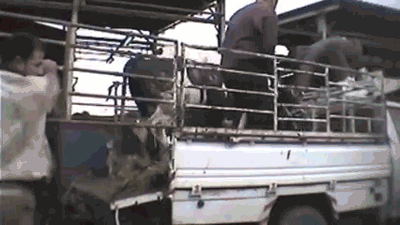
For the first three hours, she lay in the hot sun crying out. Periodically, when she urinated or defecated, she used her front legs to drag herself along the gravel roadway to a clean spot. She also tried to crawl to a shaded area but couldn’t move far enough. Altogether, she managed to crawl a painful 13 to 14 yards. The stockyard employees wouldn’t allow her any drinking water; the only water she received was given to her by Jessie Pierce, a local animal rights activist, who had been contacted by a woman who witnessed the incident. Jessie arrived at noon. After receiving no cooperation from stockyard workers, she called the Kenton County Police. A police officer arrived but was instructed by his superiors to do nothing; he left at 1 p.m.
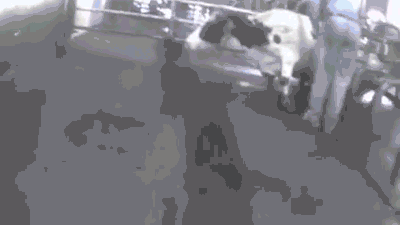
The stockyard operator informed Jessie that he had permission from the insurance company to kill the cow but wouldn’t do it until Jessie left. Although doubtful that he would keep his word, Jessie left at 3 p.m. She returned at 4:30 p.m. and found the stockyard deserted. Three dogs were attacking the cow, who was still alive. She had suffered a number of bite wounds, and her drinking water had been removed. Jessie contacted the state police. Four officers arrived at 5:30 p.m. State trooper Jan Wuchner wanted to shoot the cow but was told that a veterinarian should kill her. The two veterinarians at the facility would not euthanize her, claiming that in order to preserve the value of the meat, she could not be destroyed. The butcher eventually arrived at 7:30 p.m. and shot the cow. Her body was purchased for $307.50.
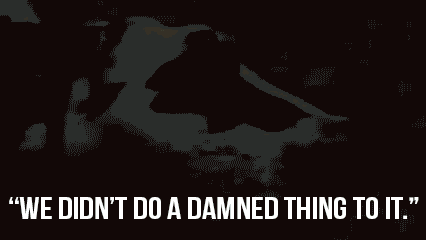
When the stockyard operator was questioned by a reporter from The Kentucky Post, he stated, “We didn’t do a damned thing to it,” and referred to the attention given to the cow by humane workers and police as “bullcrap.” He laughed throughout the interview, saying that he found nothing wrong with the way that the cow was treated.
One Cow in the Dairy IndustryShe was too sick to move—so they dragged her by the leg & left her. What happens next is heartbreaking. 🙁 This is the story of one cow in the dairy industry, & the TRUTH behind your glass of milk. #MilkTruth[Warning: HARD TO WATCH] Posted by PETA (People for the Ethical Treatment of Animals) on Tuesday, January 27, 2015
The above story is not an isolated case. It is so common that animals in this condition are known in the meat industry as “downers.” It is up to the public to demand change, and it is up to consumers to refuse to purchase the products of this miserable industry. The only way to ensure that downed animals don’t suffer for our food is to adopt a healthy, humane vegan diet.
Act Now to Help Animals
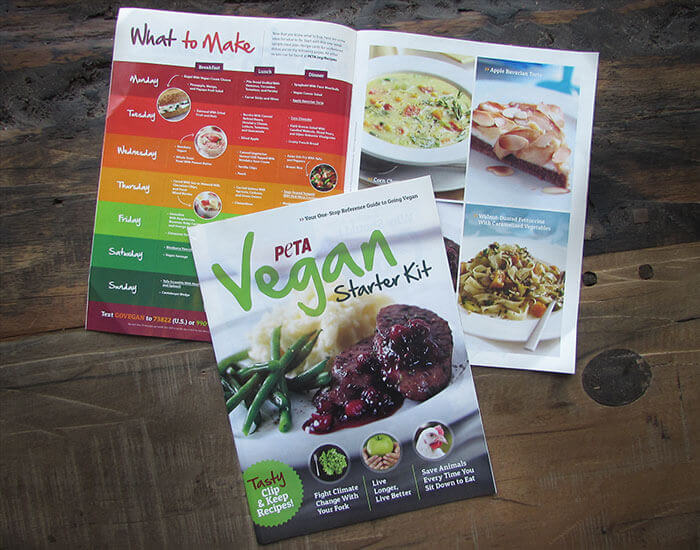
You can save 100 animals, just like the cow in this story, every year simply by adopting a vegan diet. That’s right—going vegan saves lives. Getting started is easy: Just fill out the form below to receive a free copy of PETA’s vegan starter kit, which includes recipes, useful tips on making the transition to a vegan lifestyle, and moving accounts of animal suffering in the food industry. It will guide you to a healthier, happier, and more compassionate life. You can also visit this page to order kits for your family and friends.
By submitting this form, you’re acknowledging that you have read and agree to our privacy policy and agree to receive e-mails from us.

